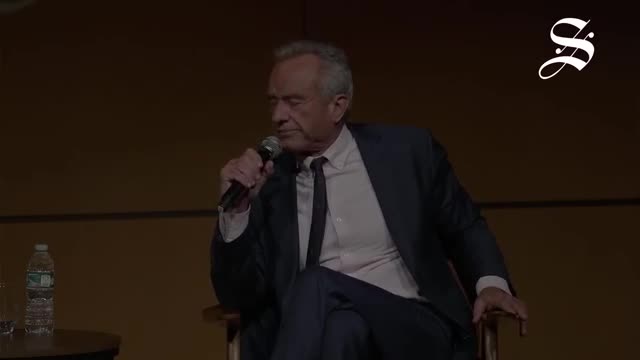Political Legacy in Crisis as Parties Shift Dramatically
October 01, 2024 | Robert F. Kennedy Jr., Presidential Candidates 2024
This article was created by AI summarizing key points discussed. AI makes mistakes, so for full details and context, please refer to the video of the full meeting. Please report any errors so we can fix them. Report an error »

In a recent discussion, a prominent figure reflected on the shifting political landscape of the Democratic Party, contrasting it with the values held by his father and uncle, former President John F. Kennedy. He expressed skepticism about whether they would find a place within today's Democratic Party, which he characterized as having strayed from its historical roots as a party of peace, civil rights, and constitutional freedoms.
The speaker lamented that the Democratic Party has become aligned with military and intelligence leaders, citing endorsements from figures like Kamala Harris, John Bolton, and Dick Cheney. He criticized Harris's convention speech as belligerent and reflective of neoconservative ideals, arguing that it marks a departure from the party's traditional anti-war stance. He pointed out that Cheney, once a polarizing figure for Democrats, still supports controversial policies such as the Patriot Act and the Iraq War, suggesting that the party's values have fundamentally changed.
Highlighting a perceived inversion in party demographics, he noted that the current Democratic base, which he claims now represents big corporations and the military-industrial complex, contrasts sharply with the working-class roots of the party in the past. He referenced the Teamsters' leader, Sean O'Brien, who recently spoke at the Republican convention, as indicative of this shift.
The speaker also discussed the financial dynamics of the two parties, noting that Democrats have significantly outraised Republicans in recent years, attributing this to a shift in billionaire support away from the Democratic Party. He expressed concern over issues such as women's sports, which he believes the party has turned against, and reiterated his belief that the Democratic Party no longer represents the values he and his family once stood for.
Ultimately, he stated that he finds more alignment with some of Donald Trump's policies, particularly regarding economic restoration, border security, and a call for unity despite differing opinions. This reflection underscores a broader conversation about the evolving identities of political parties in the United States and the implications for their traditional bases.
The speaker lamented that the Democratic Party has become aligned with military and intelligence leaders, citing endorsements from figures like Kamala Harris, John Bolton, and Dick Cheney. He criticized Harris's convention speech as belligerent and reflective of neoconservative ideals, arguing that it marks a departure from the party's traditional anti-war stance. He pointed out that Cheney, once a polarizing figure for Democrats, still supports controversial policies such as the Patriot Act and the Iraq War, suggesting that the party's values have fundamentally changed.
Highlighting a perceived inversion in party demographics, he noted that the current Democratic base, which he claims now represents big corporations and the military-industrial complex, contrasts sharply with the working-class roots of the party in the past. He referenced the Teamsters' leader, Sean O'Brien, who recently spoke at the Republican convention, as indicative of this shift.
The speaker also discussed the financial dynamics of the two parties, noting that Democrats have significantly outraised Republicans in recent years, attributing this to a shift in billionaire support away from the Democratic Party. He expressed concern over issues such as women's sports, which he believes the party has turned against, and reiterated his belief that the Democratic Party no longer represents the values he and his family once stood for.
Ultimately, he stated that he finds more alignment with some of Donald Trump's policies, particularly regarding economic restoration, border security, and a call for unity despite differing opinions. This reflection underscores a broader conversation about the evolving identities of political parties in the United States and the implications for their traditional bases.
View full meeting
This article is based on a recent meeting—watch the full video and explore the complete transcript for deeper insights into the discussion.
View full meeting